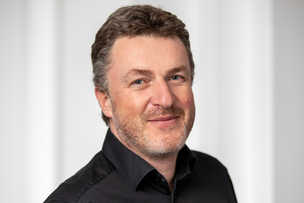Prof. Dr.-Ing. habil. Alexander Löser conducts research and teaching in the areas of Data Science and Text-based Information Systems at Berlin University of Applied Sciences since September 2013. He is also speaker of the Data Science Research Center of the university and founded the international Master’s program “Data Science” at the University.
Additionally, he is Expert in the Technological Enablers and Data Science Interdisciplinary Working Group of the ‘Plattform Lernende Systeme,‘ a platform of leading experts who are developing a roadmap for the responsible use of self-learning systems and AI, sponsored by BMBF, the German Federal Ministry of Education and Research. He also was invited as an expert for Austria’s federal Ministry of Innovation and Technology BMVIT to create the AI strategy in 2017. In 2019, he was executive board member of the Berlin Einstein Center Digital Future.
Alexander’s research interests lie at the intersection of natural language processing and machine learning. He published over 90 refereed scientific papers in prestigious international conferences and journals, including ACM CIKM, ACM TheWebConference, TACL, EACL, COLING, Elsevier Information Systems or ISWC. Alexander serves on the editorial boards and program committees of top international journals or conferences in the areas of data science and computational linguistics. In 2019, he received the best paper award at IEEE BigComp 2019.
Alexander has a well-established track record of innovation and technology transfer. Previous stations are HP Labs Bristol, IBM Almaden Research Center, the research division of the SAP AG and the Technische Universität Berlin. He gave more than 120 invited talks and holds 3 granted patents. His research has been incorporated into commercial products, such as IBM Lotus Notes and SAP HANA. He also worked as an independent consultant with eBay, IBM, Zalando, MunichRe, SpringerNature, Fresenius, Krohne, Babbel and as an independent expert with the European Union, among others. Over the time he helped these organizations to create six data platforms with more than 50 data products.
More about the DATEXIS team and Alexander Löser

